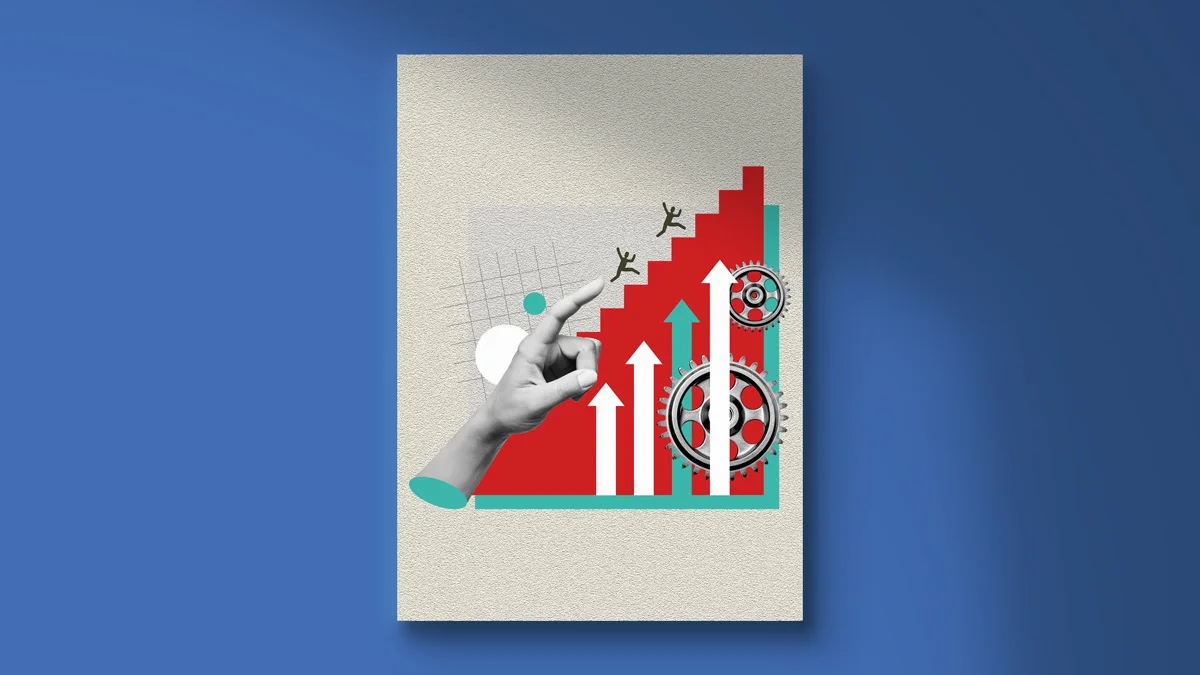
There are hundreds of thousands of podcasts around the world. Many of them focus on the areas that we talk about - mindset, business, high achievement and finding your sense of purpose. A question I get asked all the time is, why has my High Performance podcast been so successful?
I think the answer to that is because High Performance is about the outcome, not the income. What inspired me to think like this is a book I read a few years ago, just before lockdown, by Bob Burg and John David Mann. That book is called The Go-Giver and it has five laws that I want to talk through.
The first is a law of value. This states that your true worth is determined by how much you give in value rather than what you take in payment. The best leaders are the ones that serve those around them. I love the phrase that takers eat well and givers sleep well.
The next thing is the law of compensation. This is that your income is determined by how many people you serve and how well you serve them. That is one of the key things we ask ourselves on High Performance every month. Are we reaching more people? We have about four million people downloading High Performance to listen or watch in a given month. What makes me happy about that is that we are not on BBC1 or ITV on a Friday night at 7 PM. We don't spend hundreds of thousands of pounds on advertising. We have been created organically by an audience wanting to come and find us. We know we are doing something right.
Burg then talks about the law of influence, which is determined by how abundantly you place other people's interests first. I want us to get away from the idea that self-made success is what we should be celebrating. Every time I open Instagram I am surrounded by so-called influencers or business leaders telling us all the things that they have done on their own to be successful. The truth is they could have been 100,000 times more successful by working collaboratively with other people. On our own we can do so little, together with others we can do so much.
So how do you create the law of influence in your own world if you are reading this column? First, ask yourself all the time, not how does this serve me, but how does this serve other people? On High Performance, and even with my production company Whisper, everything we do is about tailoring the output to what others want. It is not about what we want to do. It's about what people need. I get really frustrated sometimes when I hear people say “I'd really love to do this.” My question every single time is “Well, does that serve others? Are you sure that's something that other people want?” I can't tell you how much of a mindset change this was for me.
The fourth law is the law of authenticity. This states that the most valuable gift you have to offer is yourself. All the things above don't happen if you don't have authenticity. What does authenticity look and feel like to me? It feels easy. Whisper has more than 300 people on a turnover approaching $100m a year. High Performance is a turnover of a couple of million and ten people. The businesses are so different in terms of size and scale and what they do. But the decision-making process is the same. It's based on authenticity. With High Performance it is serving more people every single day, to get them closer to their own version of high performance. At Whisper, it's creating content that helps to change the way people see the world.
The final law, number five in the book, is the law of receptivity: that the key to effective giving is staying open to receiving. This causes people to scratch their heads a bit. How does that look in business? The answer is optimism. Staying open to receiving is believing that great things are going to happen. This is something that in the last three years has bound together every single person who has joined us on High Performance. He or she is an optimist. They believe that no matter how bad yesterday was, today could be better. They believe that every meeting they have might be a meeting that changes the strategy or direction of their business. That the next person who walks through the door might be someone who adds incredible value to their life. That the next decision they make could be the one that is transformational for them and the people around them.
This is not to say that thinking like that guarantees it. I can understand that could sound a bit glib. But the point is if you don't believe great things will happen or you think negative things are going to happen, it’s far more likely for the negative thing to happen or for the great thing not to happen. I have really struggled when people don't like my constant positivity. What is the point of being any other way? I don't see a value in thinking any other way. Because it doesn't lead you or the people around you down a great path. Optimism is vital.
The magic of The Go-Giver is that it isn't 700 pages long. It's a short story. It's a story about a salesperson and how his life has changed. I've read it every year since because lessons from it have slipped through my fingers like sand so I try to remind myself of it. I don't think anyone will be in a worse place for reading that book.
Jake Humphrey is the host of the High Performance podcast and co-founder of Whisper Group
Related and recommended

The prime minister and chancellor may be safe for now but Cabinet ministers believe it’s a case of when, not if, they fall

After creating her own hair oil blends as a student, Lucie Macloud grew Hair Syrup into a multi-million pound business that she’s now expanding into Europe and the US

Thea Green, one of the UK’s most successful entrepreneurs in the beauty and self-care space, shares her advice

Nick Grey's story is a tale of grit, design obsession and the strategic choices behind sustainable success

